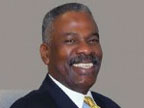
 Shattering the NCAA Exploitive Business Model
Shattering the NCAA Exploitive Business Model
By Everett Glenn NNPA Guest Columnist
The recent National Labor Relations Board (NLRB) decision granting Northwestern University football players the right to unionize, if upheld, will shatter the NCAA’s business model. When you add to the mix the frontal attack launched a few days before by noted antitrust lawyer Jeffrey Kessler, accusing the NCAA of colluding to deprive athletes of the ability to earn more than the value of their scholarships and the pending lawsuit challenging the NCAA rule that bars players from earning money from the use of their images, it is safe to say that we are at the dawn of a new era in college sports. At some point, the athletes, who do the heavy lifting, will finally receive a slice of the $16 billion per year college basketball and football pie.
The ruling that college athletes are employees and not merely “student-athletes” confirms what we have known all along: College sports is big business – for everyone except the athletes who make it possible. College basketball and football have long operated as quasi-farm systems for professional teams by discovering talent, training players, and highlighting performance.
The NCAA and the college administrators who lead its member institutions would have us believe that they place the best interest of the student-athlete above all else. They have produced a TV commercial that reminds us: “We have 400,000 student-athletes and most of them will go pro in something other than sports.” Whether they go pro in sports or “something other than sports,” college sports is given higher priority than academics on campuses across the nation, even at premiere academic institutions.
To its credit, Northwestern ranks No. 1 among the six power conferences (ACC, Big East, Big-Ten, Big-12, Pac-12 and SEC) with an 83 percent graduation rate. Even so, Kain Colter, their former quarterback and the leader of the movement to allow college football players to form a union, was steered away from pursuing a pre-med curriculum because a chemistry class conflicted with football practice. Consequently, he ended up majoring in psychology.
In the Northwestern case, NLRB Regional Director Ohr ignored the myth of the ‘student-athlete” and decided that Northwestern football players are primarily employees whose principal job is to generate revenue. And that’s just the beginning of the NCAA’s woes.
Next up is the Ed O’Bannon lawsuit. In that case, former college athletes are challenging the NCAA’s ability to profit off the name and likeness of players without compensating them. In the most direct challenge yet to the NCAA’s economic model, Jeffrey Kessler, the attorney who helped represent the NFLPA in the landmark antitrust case in which NFL players won free agency, has filed suit accusing the NCAA of colluding to deprive athletes of earning more than the value of their scholarships.
The main objective of Kessler’s lawsuit is to strike down permanently the restrictions that prevent Division 1 basketball and football players from being fairly compensated for the billions of dollars in revenues they help generate.
If judges in upcoming court cases challenging the NCAA apply the same objectivity as the NLRB exemplified, a union will be the least of the NCAA’s worries. As a preemptive strike against the inevitable change in college sports, don’t be surprised if you see both public and private universities begin to offer forms of compensation beyond the traditional college scholarship.
In order for the NCAA to remain relevant, it cannot continue to defend a system that results in so many lost college opportunities, especially concentrated among Black males from low- and middle-income families. These changes should not be restricted to universities; they should also extend to the colleges themselves, coaches, advertisers, television networks, facility operators, athletic gear manufacturers and retailers.
The wholesale exploitation of college athletes is the true definition of unsportsmanlike conduct.
Everett L. Glenn, an attorney and former sports agent, was one of the first agents to represent multiple NFL and NBA first-round draft picks in the same year. His clients have included three NFL Hall of Fame inductees and 11 first-round draft picks. He is author of a NNPA three part series detailing how the sports industry exploits not only Black athletes, but other African Americans – accountants, financial advisers, banks, construction firms, etc. – who are capable of rendering services.


Be the first to comment